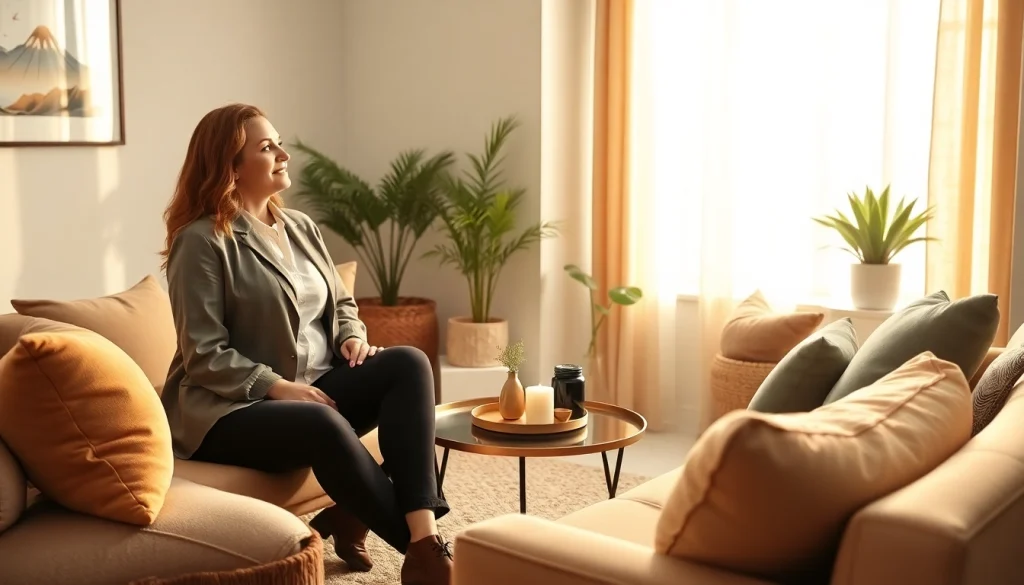What is Attachment Theory?
Definition and Historical Background
Attachment theory is a psychological framework that explores how early relationships with caregivers can shape our emotional and social development throughout life. Developed by British psychologist John Bowlby in the 1950s, this theory posits that the bonds formed during infancy and childhood can significantly influence our behaviors and relationships as adults. Bowlby suggested that children are born with an innate drive to form attachments, which is critical for their survival. His work was expanded upon by developmental psychologist Mary Ainsworth, who introduced the concept of attachment styles through her famous “Strange Situation” experiment.
Key Concepts of Attachment Styles
Attachment styles, as identified by Ainsworth and later researchers, can be categorized into four primary types:
- Secure Attachment: Characterized by comfort with closeness and independence. Those with this style tend to have healthy interpersonal relationships and self-esteem.
- Avoidant Attachment: Marked by a reluctance to depend on others and a strong desire for emotional distance. People with this style may struggle with intimacy.
- Anxious Attachment: Involves a heightened sensitivity to partner responsiveness and a fear of abandonment. Individuals often crave closeness but feel insecure in relationships.
- Disorganized Attachment: A mix of anxious and avoidant styles, leading to confusion and difficulty in relationships due to traumatic experiences or inconsistent caregiving in childhood.
Importance of Attachment Theory in Therapy
Attachment theory holds significant importance in therapeutic settings. Understanding one’s attachment style can provide invaluable insights into relationship patterns and emotional responses. Therapists, particularly those trained in this framework, can leverage this knowledge to guide clients in improving their interpersonal dynamics. As such, finding an attachment theory specialist can be transformative for individuals seeking deeper self-awareness and healing.
Identifying an Attachment Theory Specialist
Qualifications and Training
Choosing an attachment theory specialist involves understanding their educational background and training. Typically, these professionals may hold degrees in psychology, counseling, or social work, with specialized training in attachment-based therapies. Certifications from recognized institutions focusing on attachment theory or relational approaches can further validate their expertise. Additionally, many specialists undergo continuing education to stay updated with the latest research and therapeutic techniques.
Essential Skills of a Specialist
An effective attachment theory specialist should possess a unique blend of skills that facilitate a supportive and productive therapeutic environment. Key skills include:
- Empathy: The ability to understand and resonate with clients’ feelings and experiences.
- Active Listening: Listening attentively to clients and encouraging open dialogue about their attachment patterns and emotional experiences.
- Assessment: The capability to effectively assess attachment styles and their implications in a client’s life.
- Adaptability: The flexibility to tailor therapeutic approaches to meet the individual needs of clients, recognizing that attachment styles can manifest differently in different relationships.
Finding the Right Specialist for You
When seeking an attachment theory specialist, consider factors such as personal compatibility, approach to therapy, and specific expertise in addressing your concerns. Research potential specialists through professional directories, online reviews, and personal recommendations. It is also beneficial to schedule an initial consultation to discuss your needs and assess whether their therapeutic approach aligns with your expectations.
Benefits of Working with an Attachment Theory Specialist
Improving Personal Relationships
One of the primary benefits of working with an attachment theory specialist is the potential for profound improvements in personal relationships. By exploring and understanding your attachment style, you can identify maladaptive patterns that may be causing strain in your relationships. As specialists help clients develop secure attachment behaviors, relationships can transform into healthier, more fulfilling connections.
Healing from Past Traumas
Many individuals carry emotional scars from past attachment traumas, often impacting their current relationships and emotional well-being. An attachment theory specialist can guide clients through the process of healing these traumas, fostering a safe environment for exploration and self-discovery. Therapeutic techniques often include narrative therapy, where clients recount their experiences to reframe their understanding and responses to those wounds.
Building Emotional Resilience
Engagement with an attachment theory specialist equips clients with tools for emotional regulation and resilience. Learning about attachment styles enables individuals to recognize triggers and respond to emotions in healthier ways. This knowledge empowers clients to build self-confidence and reduce anxiety, resulting in a more balanced emotional state.
Common Techniques Used by Attachment Theory Specialists
Emotionally Focused Therapy (EFT)
Emotionally Focused Therapy (EFT) is a widely recognized approach employed by attachment theory specialists. This technique emphasizes the importance of emotional expression in adult relationships. Through EFT, therapists help clients identify their emotional needs and learn to communicate them effectively, thereby fostering deeper connections with others. This approach is especially beneficial for couples looking to enhance their intimacy and secure attachment.
Integrative Approach to Treatment
Attachment theory specialists often utilize an integrative approach that combines cognitive-behavioral strategies with attachment-based interventions. This holistic method ensures that therapy addresses both cognitive patterns and emotional experiences. By integrating various techniques, specialists can customize treatment plans that resonate with the individual needs of clients, optimizing therapeutic outcomes.
Role Play and Mindfulness Practices
Role play and mindfulness practices are additional techniques frequently utilized in attachment-based therapy. Role play helps clients enact different scenarios related to their attachment experiences, allowing them to practice new behaviors in a supportive setting. Mindfulness practices, on the other hand, encourage clients to remain present and aware of their emotions and thoughts, fostering self-acceptance and reducing anxiety related to past attachments.
Challenges and Misconceptions About Attachment Therapy
Common Myths Debunked
Despite the positive outcomes associated with working with an attachment theory specialist, several misconceptions may deter individuals from seeking help. One common myth is that attachment therapy is solely for people with severe psychological issues. In reality, attachment-based therapy can benefit anyone seeking to improve their emotional health and relationships. Moreover, some individuals believe that attachment styles are fixed and cannot be changed; however, research indicates that with proper intervention, people can develop more secure attachment patterns.
Addressing Client Concerns
Clients may have concerns regarding the effectiveness and safety of attachment therapy. A qualified attachment theory specialist will prioritize creating a secure and trusting therapeutic environment. Open discussions about therapy goals, expectations, and potential challenges can alleviate concerns. Understanding the evidence-based practices, techniques, and the therapeutic process assures clients that the path to healing is a collaborative effort.
The Future of Attachment-Based Therapy
As interest in attachment theory continues to grow, the future of attachment-based therapy looks promising. Ongoing research is unveiling new insights regarding attachment styles, emotional regulation, and relationship dynamics. These advancements are likely to inform the development of innovative therapeutic techniques and improve accessibility to treatment, thus helping individuals around the world to form healthier relationships with themselves and others.



